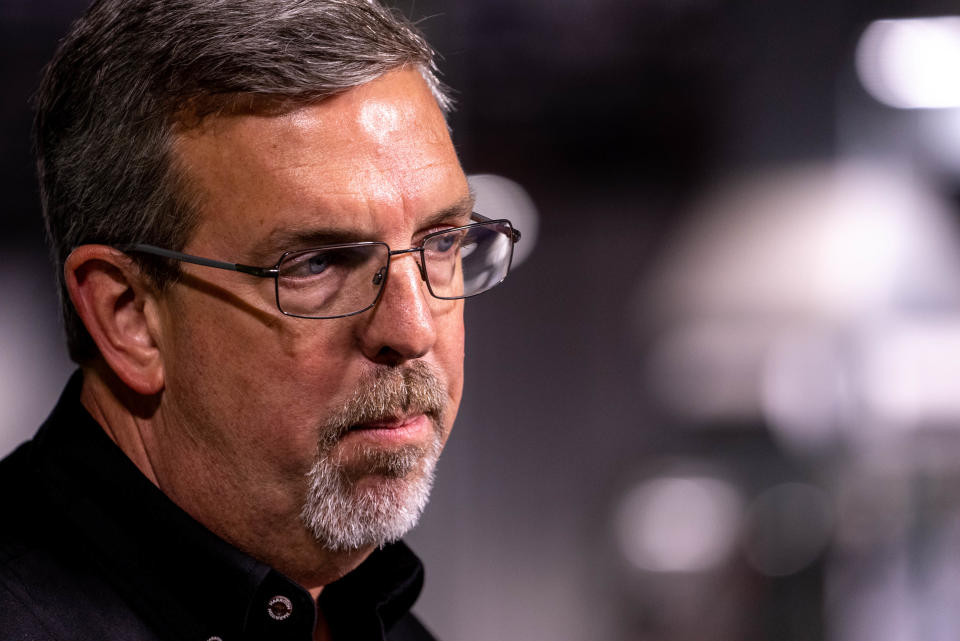Who makes ballots for Arizona elections? We went behind the scenes
Ballots for the July 30 primary election will soon be arriving in voters' mailboxes.
In Maricopa County, a postal worker will drop off a distinctive, light yellow oversized envelope. Some counties will get light green. Others will get light blue. But they will each have been filled right here in the Valley.
These ballots get tailor-made for each voter, down to a personalized QR code to ensure that your vote is connected with your county and your voter ID. It will have the partisan races that pertain to where you live, from the Senate down to your local school board.
Creating these ballots is a detailed process that starts months in advance of the primary. Thousands of pounds of paper and gallons of ink are used to ensure you have the opportunity to voice your opinion.
And for about half of the country, all of it gets done in Phoenix, Arizona.
This week on Election Dissection, an elections series of The Gaggle podcast by The Arizona Republic and azcentral.com, hosts Mary Jo Pitzl and Sasha Hupka take a field trip to Runbeck Election Services to get an upfront look at what it takes to build a ballot.
In some ways, it may not be as complicated as you think, but in others, it may not be as simple.
Who owns Runbeck Elections Services?
Runbeck Elections Services, a privately owned company, was founded in 1972 in Phoenix by Chuck Runbeck and mostly supplied printing services to small local businesses and municipal elections. In the 2000s, Maricopa County contracted Runbeck Elections Services to print and process all of their ballots.
Runbeck services ballots to 27 different states across the country so organization and security are their top consideration.

By prioritizing unique codes and color schemes, Jeff Ellington, the CEO and president of Runbeck, helps keep the different ballots on the right track.
"They stay straight just on the way we handle them and then the way the barcodes identify those those counties," he said.
Allowing politicians and members of the media onto the Runbeck floor lets them maintain a sense of transparency that he believes is important in today's political climate.
"We don't want it to be a mystery," Ellington said.
Listen to the episode
The best way to listen is to subscribe to The Gaggle on your favorite podcast app, but you also can stream the full episode below.
Note: The Gaggle is intended to be heard. But we also offer an AI transcript of the episode script. There may be slight deviations from the podcast audio.
Follow the hosts Mary Jo Pitzl and Sasha Hupka on X, formerly Twitter.
Listen to The Gaggle : Apple Podcasts | Spotify | Stitcher
Questions welcome
What political topics would you like to hear on The Gaggle? Send us a note or a voice memo via email here.
Reach the producer Amanda Luberto at aluberto@gannett.com. Follow her on X, formerly Twitter @amandaluberto.
Catch up on previous Gaggle episodes here:
This article originally appeared on Arizona Republic: How are election day ballots made? Everything voters should know

